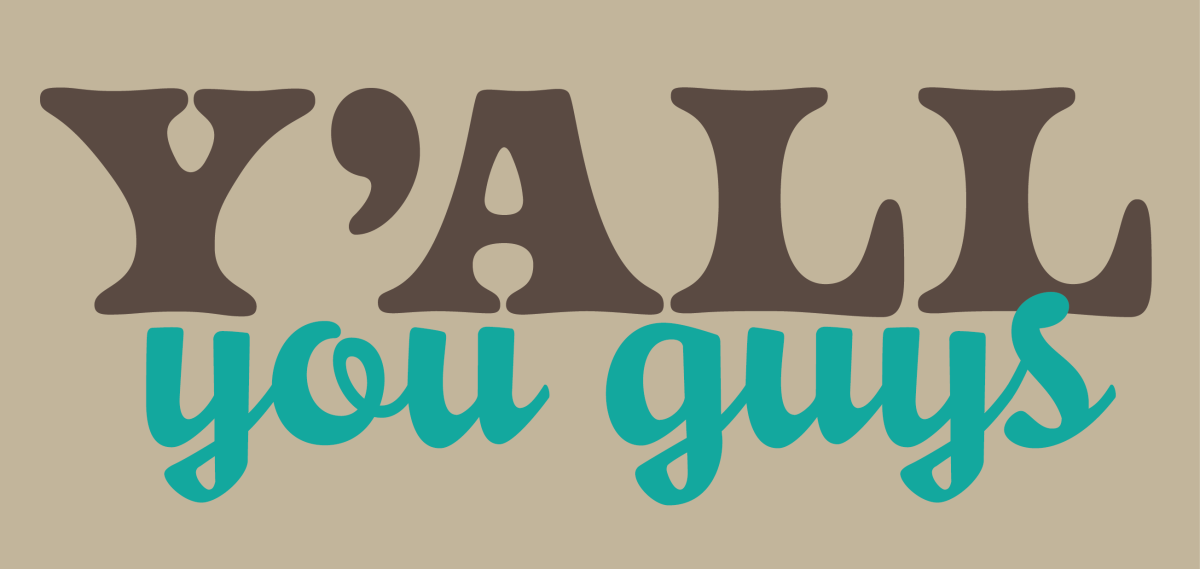The word “y’all” is an iconic staple of Southern speech, but more than just a marker of Southerness, it’s also an elegant solution to a lexical gap in the English language.
While languages such as Spanish, French and German use different words to distinguish between the singular and plural second person pronouns, English uses the same pronoun for both: “you.”
English wasn’t always like this — Middle English used “thou” for the singular and “ye” for the plural second person subject pronouns, and the object pronouns were “thee” for the singular and “you” for the plural. Old English was even more complex and included a third category called dual pronouns, which were used specifically to address groups of two. Over the centuries, however, English simplified to using “you” in all of these cases
This simplification isn’t necessarily more clear, though. Using “you” for both the singular and plural pronoun can make it ambiguous whether someone is addressing one or multiple people.
“Y’all” is the Southern solution to this ambiguity. According to the Oxford English Dictionary, the earliest attested written use of “y’all” was in 1856. However, it likely existed in spoken use before then.
The origin of “y’all” is unclear, but there are two main theories. According to one, “y’all” originated sometime prior to the 19th century in the speech of enslaved Black people in the South. According to the other theory, it originated from the Scotchs-Irish phrase “ye aw,” which Scottish or Irish immigrants brought to the South.
“Y’all” fills the lexical gap in Modern English for a distinct plural second- person pronoun. Contracting “you” and “all” into the monosyllabic “y’all,” which is just as quick to say as “you,” makes it an efficient way to clarify in both speech and writing when multiple people are being addressed.
While Southern American English has “y’all,” other regional dialects of American English propose their own plural pronouns, from “youse” (east Pennsylvania, up into New York City) and “yinz” (western Pennsylvania) to the most common “you guys.” Though these variants are not exactly the English one learns from a textbook, each represents a region’s effort to address a gap in the lexicon. As it turns out, people like being able to distinguish between singular and plural.
“Y’all” and “you guys” are the most widely used variants in American English, but “y’all” has a special appeal — it’s inclusive.
Although “you guys” is often used in a gender-neutral way, its gendered origin and connotation — “guy” in the singular is defined as “man, fellow” — can make some women and nonbinary people feel uncomfortable.
“Y’all,” however, is gender-neutral; — “all” includes everyone.
Maybe owing in part to its efficiency and inclusivity, “y’all” has grown in popularity across the U.S. over the past several decades, and it has even cropped up in other English-speaking countries.
“Y’all” fills a gap in the English language and sets a friendly, casual tone, making it an incredibly useful word in addition to its iconic association with the South.
The Crimson White Copy Desk consists of Chief Copy Editor Luke McClinton and Assistant Copy Editors Lauren Chumbley and Rachel Talley.









